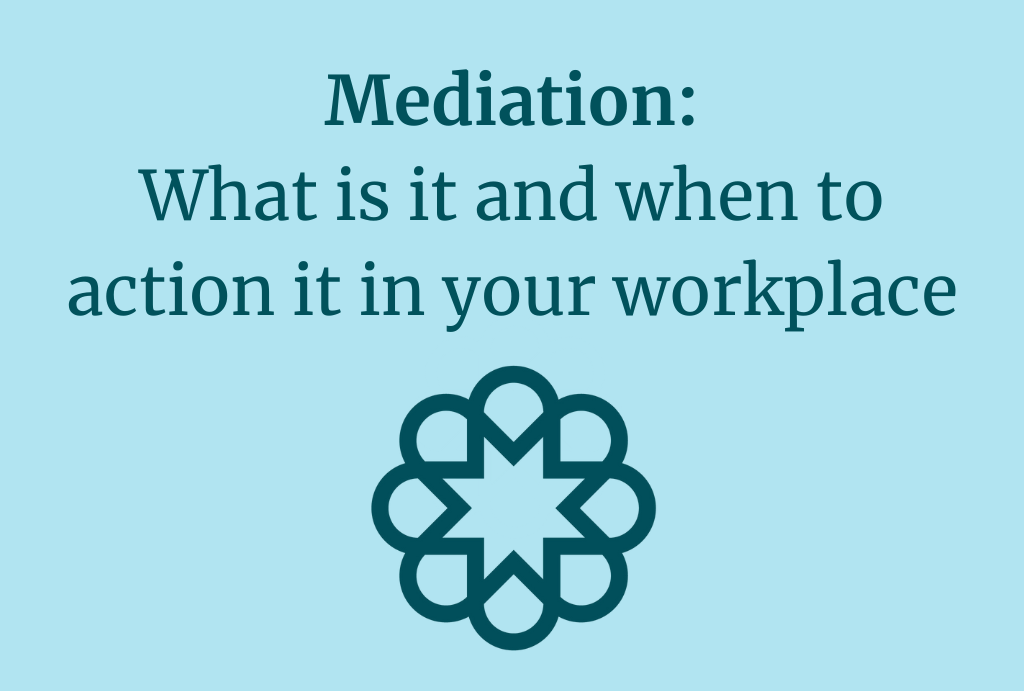Workplace conflict happens and when it does, mediation can be one of the quickest and most cost-effective ways to solve it.
Whether it’s a disagreement between colleagues, a performance issue, or a breakdown in the employment relationship, mediation offers a structured, yet relatively informal, and confidential space to talk things through and find a practical way forward.
Mediation is about giving parties the opportunity to find their own mutually acceptable outcomes, without the need to go to court or take an issue further.
What is mediation?
Mediation is a facilitated conversation between parties to help reach an agreement. It is confidential and relatively informal and is how most employment disputes are settled.
It’s voluntary – all parties must agree to it – and led by a neutral third party, who will guide the conversation and target satisfactory outcomes for all parties.
When to consider mediation in the workplace
Mediation can be an effective means of resolving any employment dispute or workplace conflict, such as;
- Personality clashes or communication breakdowns
- Disagreements over performance or disciplinary issues
- Conflicts between employees and managers
Mediation can help with any situation where the issue cannot be resolved informally by the parties themselves.
The mediation process
The mediation process is informal, but it is structured and designed to help both sides find a resolution.
It begins with the parties expressing, or their representative on their behalf, their version of events or explaining what has brought them to mediation.
Once each party has had their uninterrupted time to speak, parties can spend some time further clarifying any differences before parties are moved into separate rooms. From then, parties can put forward any settlement offers, on a without prejudice basis (which means their offers cannot be used against them in court). The mediator will tend to move back and forth between the parties to communicate the negotiations.
Parties can enter into a settlement agreement, known as a Record of Settlement, once they are in agreement with the terms of employment, or their matter can proceed – the key being that what was said in mediation cannot be referenced in any further communications around the matter.
It’s important to note that mediations can look slightly different depending on what a situation requires – this is why the informality helps. Some parties won’t need to be separated and can speak openly with one another, and others will require less contact.
How a lawyer can help
Copeland McAllister’s employment lawyers have a wealth of mediation experience, and can support before, during and after mediation.
Our team can
- Prepare for the mediation and clarify the desired outcomes
- Advise on settlement options or can draft agreements
- Ensure the legal obligations are met
Copeland McAllister services
Mediation is a proactive and practical step if you genuinely want to resolve an employment dispute.
Copeland McAllister Partner and experienced employment mediator Naoimh McAllister offers mediation services for a fixed price of $2,600 +GST for an urgent mediation.
Alternatively, our team can act as your representative to help you prepare and attend mediation.
Reach out directly at nmcallister@cmalaw.co.nz or give our team a call on 03 211 0153.
